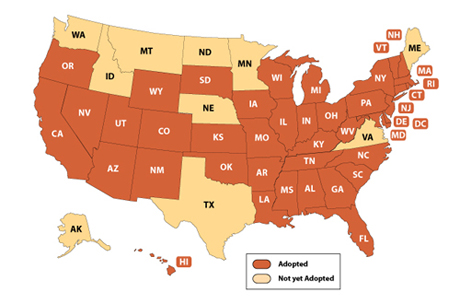If NY Times columnist and author Thomas Friedman is correct, and I believe he is, the world beyond schools no longer wants to know how much you know, but how you can use what you know. Our concept of schooling in America today is quite archaic if Friedman’s assertion is right. However, there is a strong and hopeful effort, the Common Core of Standards, to steer the ship of public education to a better place.
We know we learn best through daily practice of the skills we need to perform professionally, academically and/or recreationally. We learn and get better from practice. But our classrooms have relied too much on regurgitating factoids, at the expense of applying knowledge and skills to real world situations and problems. This is why more than 50 percent of students who graduate from high school must take remedial courses when transferring to a two-year community college, after failing placement tests.
Thankfully, we are less than two years away from implementing the Common Core of Standards. The Common Core will accelerate change for the good. However, if this country gets bogged down and mired in a partisan war over the Common Core, my optimism about public education and, by extension, America’s future will lessen.
In 2009, the Council of Chief State School Officers (CCSSO) and the National Governors Association Center for Best Practices committed to developing a Common Core of Standards. In 2010, California adopted the Common Core of State Standards, which was designed to raise the bar for skills and knowledge all students need to have to be successful in college and career.
Forty-five states have agreed to the newly created Common Core of State Standards, and the effort has been bipartisan. The goals set out in 2009 were on their way to being realized by a high level for America’s students by 2014-15, the year of implementation.
Lately, however, things are changing and getting more cantankerous. Five states have opted out or suspended implementation. This last weekend, Indiana, a state leading school reform efforts, took a giant step backward. On May 13, the Washington Post’s Valerie Strauss reported: “Governor Pence (Indiana) signed a bill Saturday that halts implementation as of Wednesday, a compromise between forces that want the Common Core to go forward because they say they will raise academic achievement, and forces who believe the standards are not as good as Indiana’s old ones and want education decisions to be local.”
Students can’t wait any longer for a more robust and relevant curriculum to engage their daily work. The Common Core is about changing instructional practice and the assessment system that holds institutions accountable for highly effective teacher and principal work. It will not come in a box.
In California, we might get the Common Core State Standards right and improve the content to a higher quality while ensuring that students have the requisite skills to practice and master the content. However, my worry is the system is broken, and until we can ensure a highly gifted and quality teacher in every classroom—and principal in every school—we will continue to tread water.
The Common Core and teacher recruitment into the profession are partial answers to the vexing riddle on how to improve public education. We must keep California on a steady course to the Common Core’s implementation. Concurrently, the County Office of Education and school districts must continue to work collaboratively to maximize its benefit in daily practice and instruction.
I am not sure this county’s schools are ready. Too many of our current school faculties believe Common Core is another reform that will go away.
Joseph Di Salvo is a member of the Santa Clara County Office of Education’s Board of Trustees. He is a San Jose native.


“If NY Times columnist and author Thomas Friedman is correct, and I believe he is, the world beyond schools no longer wants to know how much you know, but how you can use what you know. Our concept of schooling in America today is quite archaic if Friedman’s assertion is right.”
An argument from authority is one thing, but to lead off with a man who authoritatively stated in two weekly columns that Benghazi was caused by an anti-Islam video trailer should be a little embarrassing. True to form, the Mercury News ran both columns, and neither the newspaper nor Friedman has apologized or clarified his grotesque deception. And now you prop him up as an expert on education.
This is just another of those grand schemes that will effectively advance the nationalization of education, but generate no real progress on the local level.
Anyone who has seen this pattern will recognize that “Common Core” will fragment and disappear by the end of the Obama administration just as “Close Achievement Gaps” effectively disappeared with the end of the Bush II administration.
Dale makes a valid point. And since California Education System is in the toilet they may want to try anything. Kudos to the States that can figure out what their children need.
For those of you that haven’t been following this, it’s the replacement for No Child Left Behind. How can you have a whole article about something that’s going to replace No Child Left Behind and not mention it?
Would that politicize it?